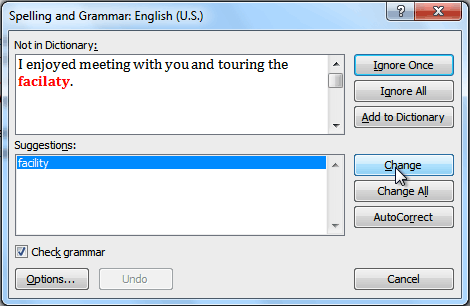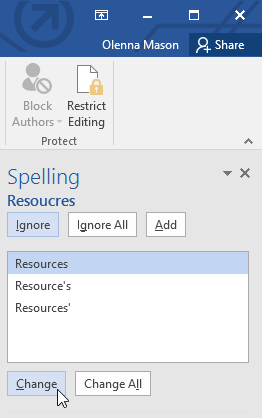
:max_bytes(150000):strip_icc()/fernando-hernandez-DoWI-BnPPMo-unsplash-294289923b2642479e748a2591e45095.jpg)
Writer’s false-flag rate is lower than any other tool, because the underlying machine learning models are trained on data from people writing at work - not students or people just starting to learn English. Not all grammar rules are meant to be followed.
Grammar AI that understands some rules are meant to be broken: You have a style and we get that. #SPELLING AND GRAMMAR CHECK WORD ONLINE PROFESSIONAL#
Writer achieves that for professional writers by providing the following features: Professional users need an AI writing assistant that provides consistently excellent corrections and suggestions everywhere they write online.

Why is Writer the preferred Grammarly alternative for professionals?.More content checks than any other writing assistant: In addition to AI grammar and spelling checks, Writer checks your content for:.You can also use Writer with a team, making it easy to share a writing style or set of preferred terminology with a group of people. You don’t talk to your boss the way you do your best friend, and Writer understands that.

Built for professional use: Writer is built for the writing we do at work.

Artificial intelligence: More content coming here from the answer above. Yes, Writer has a great web editor too, when you want a full-screen, distraction-free editing experience. It works everywhere: A browser extension, Word plug-in and Google Document add-on so that you can take Writer with you everywhere you write on the web. However, unlike most writing assistants, Writer provides some unique features for stronger, better writing: Like many writing assistants, Writer is a comprehensive grammar and spell checker. How does Writer compare to other writing assistants?. Our data is the only data set built specifically for the writing that matters most - the writing that happens at work. The ability to generalize is a real differentiator between grammar error correction systems, including Writer and Grammarly’s. And at Writer, we are very careful about the training data we feed our model, because good data helps the model generalize well. It doesn't just memorize examples, but gets a "feel" for things. We do this millions and millions of times, and the model learns. Then, we would change the verb "write" to the incorrect "writes": Writer's AI writing assistant helps everyone at your company writes with the same style, terminology, and brand voice and tell the model that this is a bad sentence. We might show it Writer's AI writing assistant helps everyone at your company write with the same style, terminology, and brand voice and tell the model that this is a good sentence. For example, we teach the Writer deep learning grammar error correction system to correct subject/verb agreement by showing it many examples of subjects and verbs. Deep learning systems start out with the capacity to learn, and then are trained to recognize patterns by being shown many examples. That's why Writer uses techniques from artificial intelligence, such as deep learning. There are too many ways for the English language to work, so a mostly valid rule could break in some contexts. Even with an army of linguists, you just couldn’t cover all the possible English grammatical errors. There are relatively few always-true, easy rules that can be programmed. However, the vast majority of errors we would want to catch are contextual. This works well when the problem isn't contextual, ie, a rule that says, anytime someone types teh they actually meant the. Most grammar checkers use rules to identify English writing errors and suggest corrections.


:max_bytes(150000):strip_icc()/fernando-hernandez-DoWI-BnPPMo-unsplash-294289923b2642479e748a2591e45095.jpg)





 0 kommentar(er)
0 kommentar(er)
